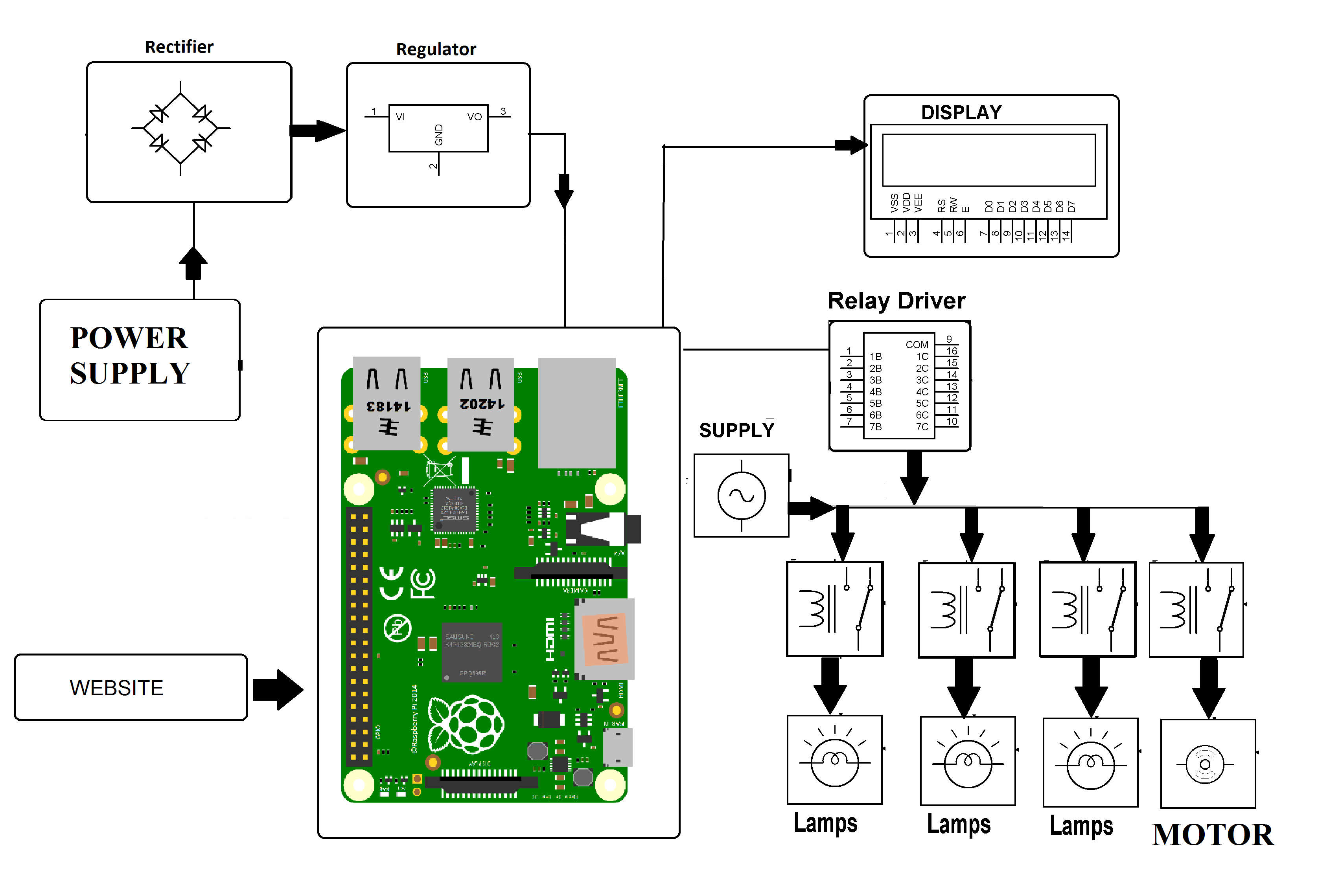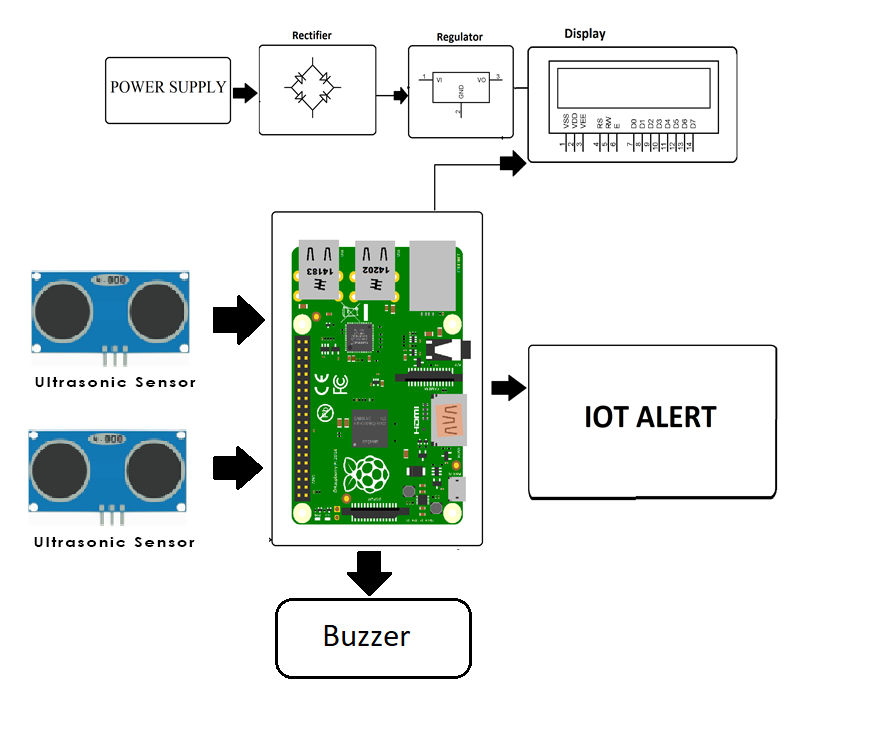In an era defined by the seamless connectivity of the Internet of Things, is it possible to harness the full potential of remote device management without incurring exorbitant costs? The answer is a resounding yes. Finding the right free SSH IoT solution for your Raspberry Pi projects can not only be a game-changer but also the key to unlocking a world of innovative possibilities.
As technology continues its relentless evolution, the Internet of Things (IoT) stands as a pivotal force, reshaping how we interact with our environment. The Raspberry Pi, a beacon of innovation in the realm of DIY projects and home automation, necessitates the integration of SSH (Secure Shell) for robust and efficient device management. This piece delves into the finest free SSH IoT solutions available for Raspberry Pi, providing you with the knowledge to create projects that are both budget-friendly and packed with power.
| Category | Details |
|---|---|
| Overview | This article provides comprehensive insights into SSH (Secure Shell) IoT solutions tailored for Raspberry Pi devices. It explores free and effective methods for remote device management, encompassing setup, optimization, and security best practices. |
| Target Audience | Developers, hobbyists, IoT enthusiasts, and anyone seeking to remotely manage and control Raspberry Pi-based devices. |
| Key Focus Areas | Understanding SSH, top free SSH IoT solutions (OpenSSH, Bitvise, etc.), setup guides, security measures, advanced techniques (port forwarding, tunneling), real-world applications (home automation, environmental monitoring, industrial IoT), and a comparison of free solutions. |
| Expected Outcomes | Readers will learn how to securely and efficiently manage their Raspberry Pi devices remotely, enabling them to build robust and secure IoT projects without incurring significant costs. |
| Benefits | Enhanced security, remote access capabilities, compatibility with various IoT applications, cost-effectiveness through free solutions, and a comprehensive guide to facilitate successful project implementation. |
Whether you're embarking on a home automation venture, aiming to monitor remote sensors, or seeking to control robotics, SSH IoT serves as the bedrock for flawless connectivity. This detailed guide provides a complete overview of SSH IoT for Raspberry Pi, from the initial setup to advanced optimization techniques, ensuring your projects are both resilient and secure.
- Decoding Billy Milligans Life Trauma Did And Legal Battles
- Helen Hunt Exploring Sexuality Rumors Her Life News Insights
What is SSH IoT and Why It Matters for Raspberry Pi
Understanding SSH
SSH, or Secure Shell, represents a cryptographic network protocol engineered for the secure exchange of information across unsecure networks. In the context of IoT devices, particularly the Raspberry Pi, SSH emerges as a pivotal tool, enabling remote access while preserving data integrity. By implementing encryption for all data transmissions, SSH safeguards your commands and sensitive information from any form of unauthorized intrusion.
- SSH provides a secure channel for remote command execution.
- It incorporates robust authentication mechanisms, including passwords and public-key cryptography.
- SSH exhibits broad cross-platform compatibility, making it highly adaptable for diverse IoT applications.
IoT and Raspberry Pi
The Raspberry Pi, celebrated for its compact footprint and remarkable processing power, is a favorite among IoT aficionados. When coupled with SSH IoT solutions, the Raspberry Pi empowers users to remotely administer their devices, irrespective of their geographical location. This capability is especially valuable in projects spanning home automation, environmental monitoring, and various industrial applications.
The core advantages of employing SSH IoT for Raspberry Pi include:
- Robbie Rotton A Look Into The Life Of An Entertainment Icon
- Bill Kaulitzs Partner Inside Tokio Hotel Stars Love Life
- Heightened security through encrypted connections.
- Remote access functionality for device management.
- Seamless compatibility with a vast array of IoT applications.
Top SSH IoT Solutions for Raspberry Pi
1. OpenSSH
OpenSSH stands as one of the most widely utilized SSH implementations, often pre-installed on numerous Linux distributions, including Raspberry Pi OS. Its reliable features and extensive community support establish it as the premier choice for SSH IoT applications.
Key Features:
- Supports both SSHv1 and SSHv2 protocols.
- Offers robust encryption algorithms to ensure secure communication.
- Includes tools for secure file transfer (SFTP) and port forwarding.
2. Bitvise SSH Client
Bitvise SSH Client presents another highly favored choice for Raspberry Pi users. While primarily designed for Windows environments, it offers exceptional compatibility with Raspberry Pi and simplifies the entire SSH IoT setup procedure.
Advantages:
- Intuitive graphical user interface (GUI) for effortless navigation.
- Supports multiple authentication methods, including public keys for enhanced security.
- Incorporates supplementary features like terminal emulation and file transfer capabilities.
Setting Up SSH on Raspberry Pi
Step-by-Step Guide
Setting up SSH on Raspberry Pi is a relatively straightforward procedure. To enable SSH and establish a remote connection to your device, follow these steps:
- Begin by installing Raspberry Pi OS on your device, setting the foundation for your project.
- Activate SSH by navigating to the Raspberry Pi Configuration menu and selecting the "Interfaces" option, then enabling SSH.
- Connect your Raspberry Pi to the internet, and make a note of its IP address, crucial for establishing remote access.
- Utilize an SSH client (such as PuTTY or the built-in Terminal) to establish a secure connection to your Raspberry Pi.
Troubleshooting Common Issues
While setting up SSH IoT for Raspberry Pi, you might encounter certain challenges. Here are some helpful troubleshooting tips:
- Confirm that SSH is correctly enabled in the Raspberry Pi Configuration settings.
- Double-check the IP address and network configuration of your Raspberry Pi to ensure proper connectivity.
- Examine your firewall settings to verify that they permit SSH traffic on port 22.
Security Best Practices for SSH IoT
1. Use Strong Passwords and Public Key Authentication
One of the most effective ways to fortify your SSH IoT setup is to implement robust passwords and activate public key authentication. This strategy minimizes the risk of unauthorized access, ensuring that only authorized individuals can connect to your Raspberry Pi.
2. Disable Root Login
Another critical security measure is to disable root login. By restricting access to the root account, you significantly decrease the potential harm caused by malicious entities.
3. Regularly Update Your System
Keeping your Raspberry Pi OS and SSH software up-to-date is paramount for maintaining security. Routine updates guarantee the prompt patching of any identified vulnerabilities, fortifying your system against potential threats.
Advanced SSH IoT Techniques
Port Forwarding
Port forwarding is a powerful feature of SSH, granting you the ability to access local services running on your Raspberry Pi from anywhere in the world. By setting up port forwarding, you can securely access web servers, databases, and other essential services running on your device.
Tunneling
SSH tunneling adds an extra layer of security by encrypting all traffic exchanged between your local machine and Raspberry Pi. This is particularly advantageous when operating over unsecure networks, such as public Wi-Fi hotspots.
Real-World Applications of SSH IoT for Raspberry Pi
1. Home Automation
SSH IoT allows for the effortless integration of Raspberry Pi into home automation systems. From controlling smart lighting to monitoring security cameras, SSH provides the fundamental tools needed for remote management and automation.
2. Environmental Monitoring
By utilizing Raspberry Pi with SSH IoT, you can create sophisticated environmental monitoring systems. These systems can track various environmental factors such as temperature, humidity, and air quality, providing valuable data for climate research and agricultural applications.
3. Industrial IoT
In industrial contexts, SSH IoT can be utilized to manage and monitor remote devices, ensuring operational efficiency and reducing potential downtime. This proves particularly useful in scenarios where physical access to devices is limited or challenging.
Comparison of Free SSH IoT Solutions
The following table offers a concise comparison of various free SSH IoT solutions, highlighting their key features and capabilities.
| Solution | Platform | Authentication Methods | File Transfer | Port Forwarding |
|---|---|---|---|---|
| OpenSSH | Linux, macOS, Windows | Password, Public Key | Yes | Yes |
| Bitvise | Windows | Password, Public Key | Yes | Yes |
| PuTTY | Windows | Password | No | Yes |
Frequently Asked Questions (FAQ)
1. Is SSH IoT Safe for Raspberry Pi?
Yes, when implemented with the proper configuration, SSH IoT is a safe and secure option for Raspberry Pi. By adhering to security best practices, such as employing strong passwords and enabling public key authentication, you can guarantee the security of your device.
2. Can I Use SSH IoT for Free?
Absolutely! A wide array of SSH IoT solutions, including OpenSSH and Bitvise, offer free versions suitable for personal and educational purposes. These tools provide all the required features to remotely manage your Raspberry Pi effectively.
Here is a table with details and links of some popular tools
| Tool | Description | Link |
|---|---|---|
| OpenSSH | A widely-used, open-source SSH implementation that is pre-installed on most Linux distributions. | OpenSSH Official Website |
| Bitvise SSH Client | A free SSH client for Windows, offering a user-friendly GUI, support for multiple authentication methods, and file transfer capabilities. | Bitvise SSH Client |
| PuTTY | A free, open-source SSH client for Windows. It supports SSH, Telnet, and raw TCP connections. | PuTTY Official Website |
- Unveiling Heidi Grey Biography Career In Adult Film
- Elisabeta Plourde Unveiling The Artist Her Impact

